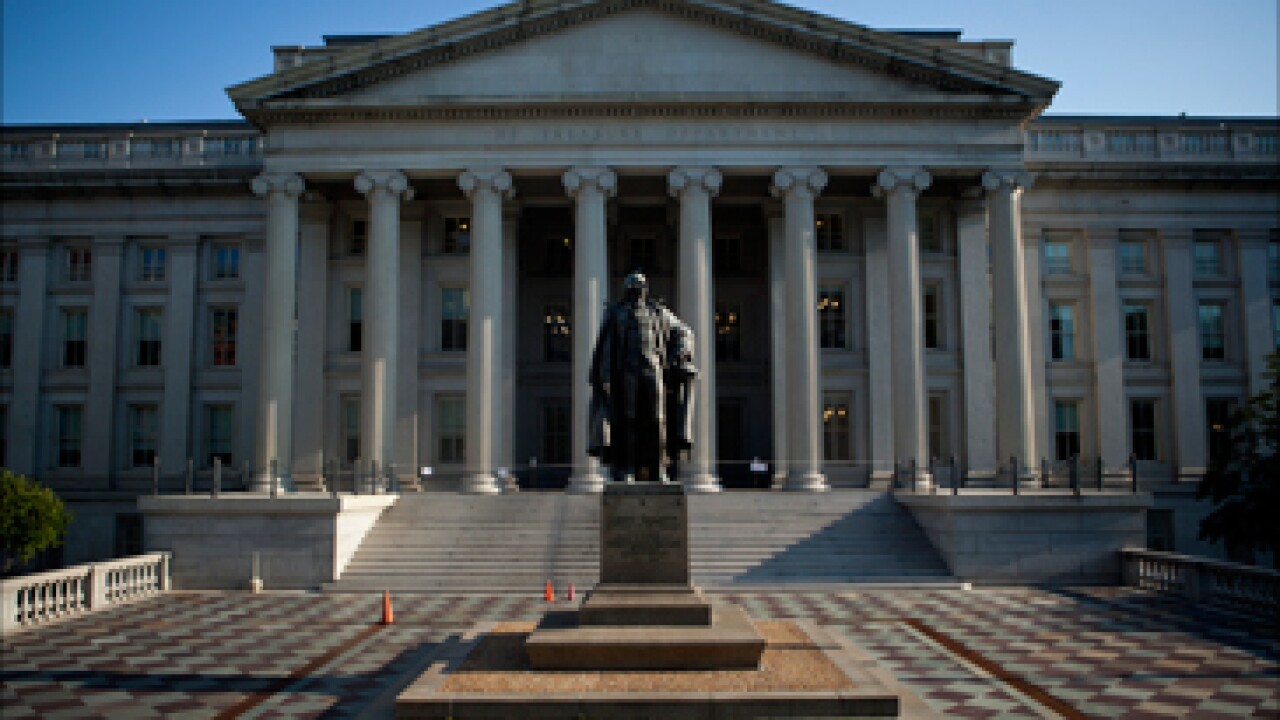-
Federal Reserve officials want to see how exactly new trade policies impact the U.S. economy before adjusting interest rates. Markets and monetarists have different ideas about what that might look like.
April 8 -
JPMorgan Chase's CEO emphasized his concerns about geopolitical conflict and brought up recent culture shifts at the bank in his annual letter to shareholders.
April 7 -
The central bank wants to let Trump's policies play out across the economy before deciding which way to move interest rates, and it's too soon to know what the impacts will be, the Federal Reserve chair said.
April 4 -
House Republicans, led by House Financial Services Committee Chairman French Hill, R-Ark., outlined their priorities for the Trump administration's banking agenda in a series of letters to key regulators.
April 1 -
The Trump administration is leapfrogging the normal process by taking its fight over a district court injunction blocking efforts to shut down the Consumer Financial Protection Bureau to a federal appeals court, according to the CFPB workers' union.
April 1 -
The Trump administration continues to battle the Consumer Financial Protection Bureau's union by seeking a stay of a preliminary injunction that reinstated the CFPB's workforce and contracts and preserved its data.
March 31 -
The Federal Reserve governor said it is healthy to examine the regulatory architecture, but stressed the importance of the central bank having insight into the banking system.
March 28 -
The Treasury Department told the OMB that all 11 programs in the CDFI Fund are statutorily mandated. The White House said "no final decisions have been made" about the programs.
March 28 -
In a paper, former central bank researchers make the case that the Federal Reserve could better support the Treasury market from disruptions in the cash-futures basis trade by hedging its asset purchases.
March 26 -
The Consumer Financial Protection Bureau has rehired more than 100 fire employees, but the union claims dozens of employees have not been reinstated in violation of a federal court order.
March 21









